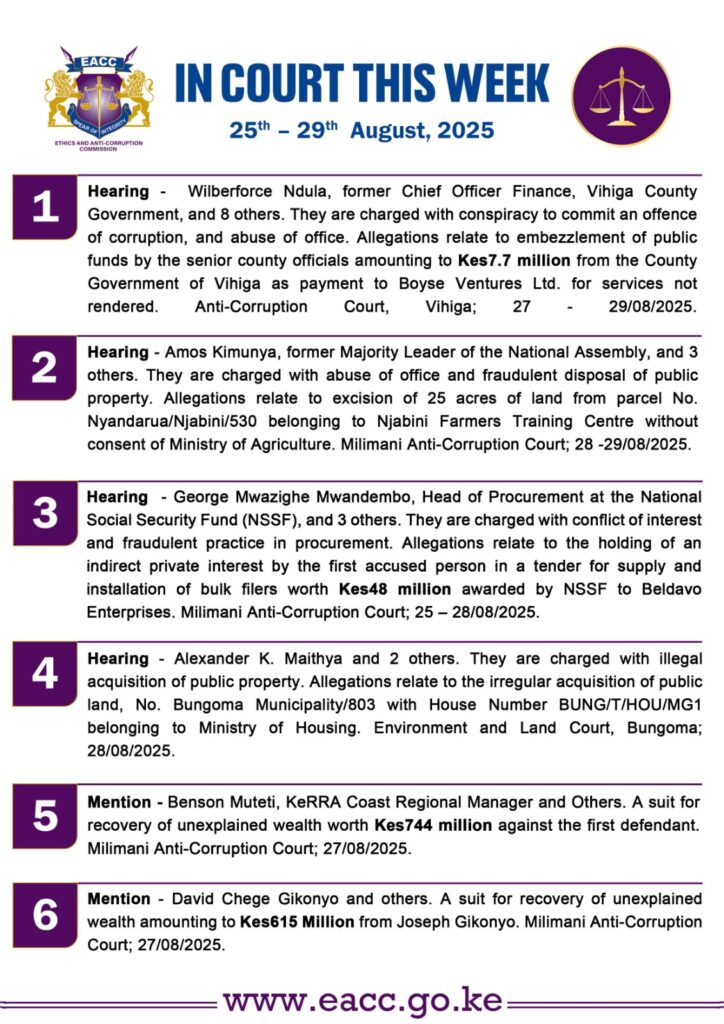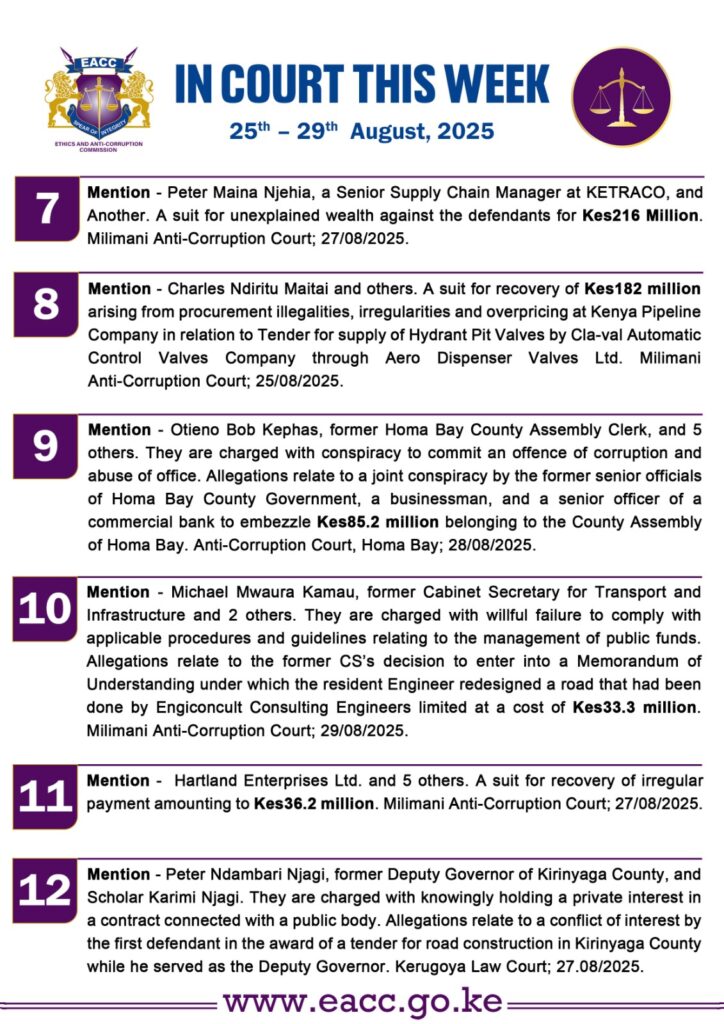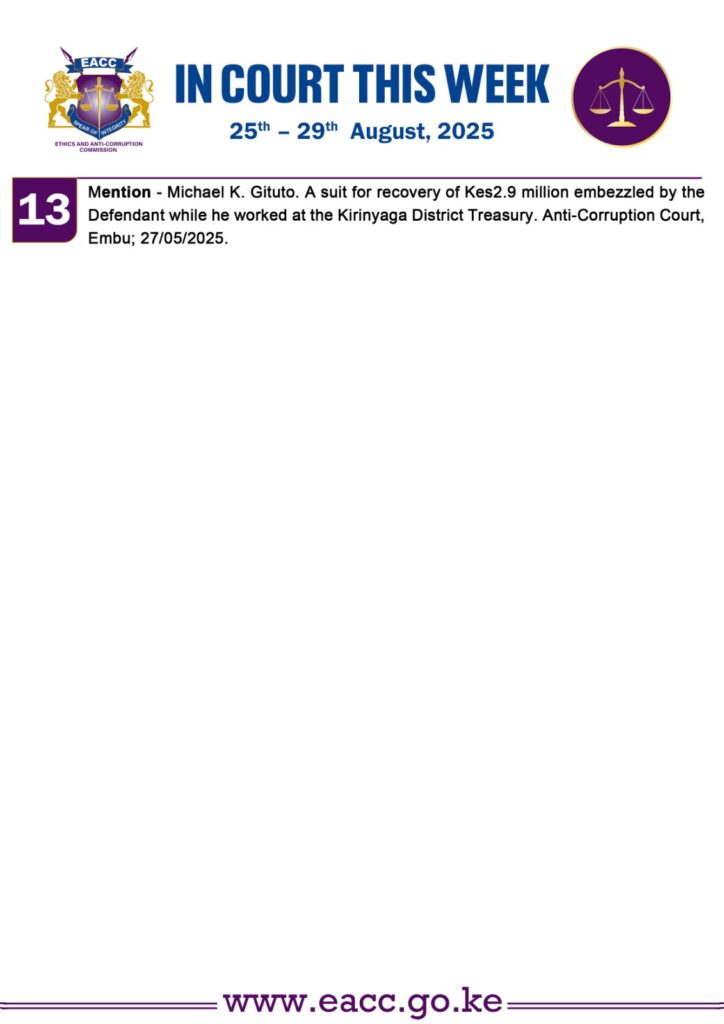Kenya has in recent years witnessed a renewed push against corruption, largely driven by public anger following the widespread protests of 2024 that exposed government mismanagement and misuse of public funds.
The protests gave momentum to calls for accountability, forcing institutions such as the Ethics and Anti-Corruption Commission to take more aggressive steps. Investigations have since widened to include high-profile leaders, with five sitting governors and twelve members of parliament facing scrutiny over embezzlement and bribery linked to county governments.

Surveys continue to show how deeply rooted corruption is in everyday life. Police officers have consistently ranked highest in bribery cases, with about 28 percent of reported incidents pointing at them. They are followed closely by revenue authority officials and local chiefs, who are often accused of using their positions to extort money from citizens.
This paints a worrying picture of how corruption filters down from the highest offices to the most basic levels of service delivery. One case that caught national attention came from Vihiga County, where senior officials were accused of embezzling millions through fake services.

Investigations led to the freezing of luxury apartments in Nairobi allegedly bought with stolen funds. It was revealed that county insiders created fraudulent companies to siphon public resources, showing how devolved governments are often used as breeding grounds for such schemes.
In another scandal dating back to 2005, a former lands minister was accused of irregularly allocating 25 acres of public land in Nyandarua valued at 60 million shillings. The land was meant for a farmers’ training center but ended up in private hands after approvals were bypassed.
At the National Social Security Fund, procurement officers were recently charged with inflating a tender worth 48 million shillings and awarding it to unqualified bidders in exchange for bribes.
Unexplained wealth cases have been on the rise, such as one involving a roads authority manager whose 500 million shillings in cash and property could not be explained given his modest salary. Authorities believe the wealth was tied to kickbacks from contractors.

A tax authority manager and his wife were also exposed for tax evasion worth 38 million shillings while sitting on nearly 600 million shillings in unexplained assets.
Energy and infrastructure projects have also been hit by corruption. A power transmission company executive was found with assets worth 216 million shillings, suspected to have been acquired through bribery and conflict of interest.
Former pipeline officials faced charges over a fraudulent tender for hydrant pit valves, which led to losses and substandard supplies. In Homa Bay, a county assembly clerk and associates were convicted for embezzling 85 million shillings through money laundering and fake contracts, while in Kirinyaga, a former deputy governor was charged with conflict of interest in a road tender awarded to an associate.
The health sector has been one of the most affected, with the Social Health Authority facing allegations of fraud involving billions of shillings. Hospitals have been suspended over fake claims, while a controversial 104 billion shilling contract for system management has drawn criticism over ties to political families and insiders.
Critics argue that prosecutions have often been selective, targeting smaller officials while shielding more powerful figures behind the scenes.
National surveys have identified Uasin Gishu as the county with the highest bribery demands, while Busia has faced raids over irregularities worth 1.4 billion shillings. Although laws are being strengthened and public education campaigns rolled out, a quarter of Kenyans still report being asked for bribes to access basic services.
The challenge remains whether the courts and investigative bodies can hold the powerful accountable or whether political interference will continue to derail justice.
The coming months will therefore be a critical test of Kenya’s commitment to finally breaking the grip of corruption that has long hindered its growth.





















Add Comment